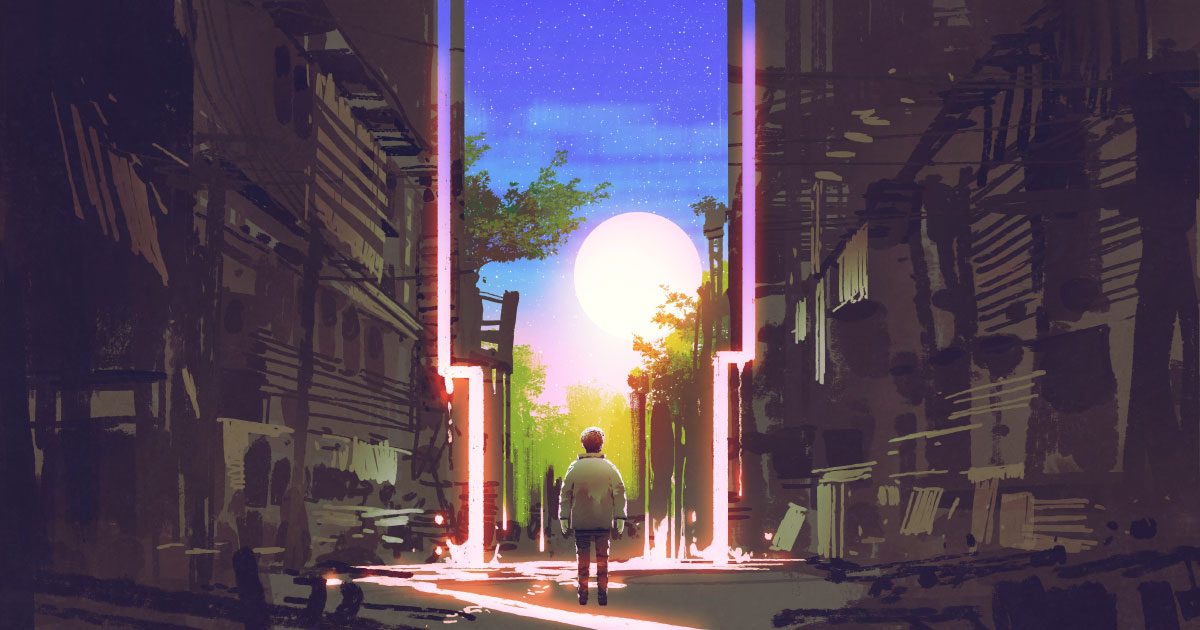Surviving Uncertainty

Seventeen years ago Susan Jeffers wrote a book called Embracing Uncertainty. In the book she suggested that in times of distress it is helpful to wonder about things generally instead of hoping for something specific.
When we hope for a definite result, we become attached to that particular outcome and are disappointed if it doesn’t materialise. But when we wonder about what may happen, we are keeping an open, interested mind and limiting our potential for frustration and distress.
Take this lockdown for example. For many weeks now we haven’t been allowed to exercise outside our homes. It has been hard (I am acutely aware that it is not nearly as hard as many other things for many people – but for the purposes of this example, please indulge me).
After the announcement of the expected change from level 5 to level 4 this Friday, one of the first things I found myself doing was hoping that we will be able to walk/run/cycle outside again. Every day I would catch myself saying or thinking, “I hope we can go for walks again on Friday” or “in 4 sleeps we will hopefully be able to go for a walk”. I found myself becoming more and more attached to that walk. I started counting sleeps and promising the dogs a long-awaited outing.
Then, I realised that if the Ministers announced that there will be no walking, I would be very, very disappointed. And probably quite disgruntled and grumpy.
So I shifted to making a concerted effort to wonder about it instead: “I wonder if we’ll be able to walk again after Friday?” “I wonder when we will be able to walk again?” “I wonder what level 4 is going to look like?” Immediately I felt less attached, less stressed and less open to upset and anger.
In 2003, Jeffers’ message was that the world was forever changed by the events of 9/11 and, in order to live happily and successfully in it, we needed to learn to adapt to change and embrace uncertainty.
And then along came Covid-19. Along came terrors and horrors and uncertainty on a whole new, unimagined, level.
In the early days of the crisis, we spoke of the end to lockdown and about ‘when things get back to normal’. As the virus continues to confuse and paralyse economies and communities all around the world, it is increasingly apparent that there is no normal anymore.
The truth is that we don’t know when this will be over or how it will be over or what things will look and feel like when it is over. There is very little that we can predict or rely on right now. It’s unsettling and worrying and scary.
Our job now is not to embrace uncertainty, but to survive it.
More and more I am being asked to provide support to individuals and organisations struggling with the stress, anxiety, exhaustion and overwhelm that is a defining experience of so many enduring lockdown. Interestingly, the range and progression of symptoms (physical and emotional) that many are developing during this Lockdown period mirror those of burnout and compassion fatigue, prompting me to offer recovery coaching for what I am calling Covid Fatigue.
In my book Recover from Burnout I describe burnout and compassion fatigue as an existential emergency. “…it isn’t just a feeling of exhaustion, being overwhelmed and extremely stressed and anxious….it’s also a feeling of listlessness and ineptitude, a lack of enthusiasm and excitement.”
Covid Fatigue, too, is an existential emergency. It is an experience of exhaustion, overwhelm, anxiety, fear; a questioning of everything we have ever known or expected of and from the world and ourselves.
We need to be kind to ourselves. Wherever and whenever possible, we need to show ourselves and everyone around us compassion and care. We need to lower our expectations and allow ourselves to celebrate just surviving.
One of the ways we can be kind to ourselves is to do what Susan Jeffers suggested; wonder, rather than hope.
Try it yourself. See if you can trade in some hopes for some wonders and see how it feels. I know that for me it seems better to wonder than to hope in times like these.
Feeling overwhelmed in your life, work or relationships?
- Purchase one of my self-study online courses.
Tags: anxiety | avoid crisis | burnout | burnout recovery | covid | covid19 | lockdown | uncertainty
- “I have seen various psychologists and therapists but none of them have the skill of Judy in being able to relate to me and the way I think about things.”
- “Judy, you have given me the tools to change and move my life in directions I never knew possible. I am truly grateful for your help.”
- “Perception is everything and working with Judy has helped me realise my true potential by changing my outlook of life into more positive ones. I enjoy walking out of a life coaching session feeling like I am in control again, less stressed and more energetic.”
- “Judy is my go-to person when I find myself uncertain about how to interpret the signposts in my life. Her insights and ability to draw out what lies deepest inside have helped provide clarity and integrity at pivotal life moments over many years.”
- “I’d recommend Judy to anyone who’s feeling stuck, weary, confused, discouraged, uncertain, in need of support – basically, I’d recommend her to any carbon-based life form that breathes oxygen and would like to have a wonderful life.”